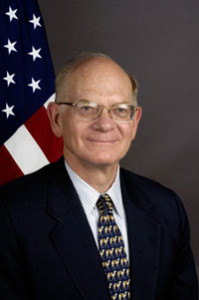Ambassador Neumann: Politicians have driven us into the bunker
Ambassador Neumann is a familiar name to many, both Americans and non-Americans, but just in case you’ve never heard of him, here’s a summary;
– Diplomat and employed by the State Dept since 1970, specialized in Middle East affairs, Director of the Iraq office, Ambassador to Algeria, Ambassador to Bahrain, Ambassador to Afghanistan, Director of the American Academy of Diplomacy (curr.)
So… what’s this about bunkers, then?

“There’s less willingness among our political leaders to accept risks, and all that has driven us into the bunker.”
That’s the whole quote right there. The NYTimes article, and Neumann, describes the attitude towards security in US diplomatic missions very accurately. From having an attitude not unlike the wild west settlers, where risk was accepted, incorporated, endured and dealt with rationally, the heart and center of American dealings with other nations, other people and countries have become the question of so-called “security”.
American diplomacy has already undergone vast changes in the past few decades and is now so heavily encumbered by fortresslike embassies, body armor and motorcades that it is almost unrecognizable. In 1985 there were about 150 security officers in U.S. embassies abroad, and now there are about 900.
Keep in mind; these “security officers” are RSOs – Regional Security Officers. This doesn’t include security personell, Marines stationed in and around embassies, SDU teams and so on. A single embassy security department in a no-threat/no-violence country can go something like this;
– 2 RSOs (one RSO and one ARSO – assistant RSO)
– 40 – 50 guards (~25 full time, rest part time) and their Supervisor
– MSGs (Marine Security Guards) and their CO (SSgt or Gunny)
– Investigator (for background checks of locally employed staff – LES – etc.)
– SDU (Surveillance Detection Unit) of ~10 people
– ~5 specially trained armored car drivers
The list varies, of course, but that’ll get you nicely started, though it doesn’t include military advisers and all that jazz. Mostly, they’re not State Dept employees anyway.
The NYTimes writer continues;
…the U.S. Embassies in Yemen, Saudi Arabia and, of course, Iraq, were so formidable that even I felt unwelcome visiting them. British and European diplomats sometimes seemed more conversant with the local culture than the Americans, despite their much smaller staffs and resources.
The NYTimes article goes on over 5 pages, but this is probably the best security piece we’ve seen in a good while. So check it out here.
